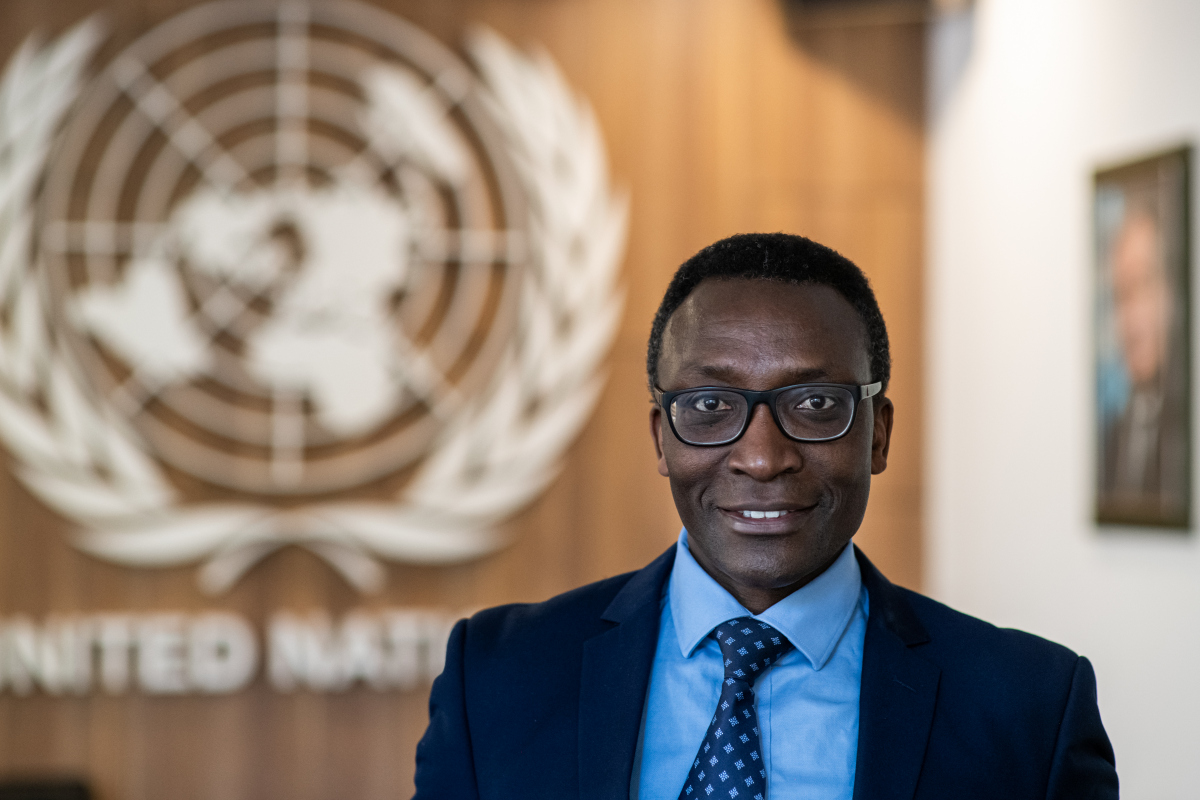The Bodyright campaign in Serbia, now in its third year, has achieved significant success in raising awareness among people about widespread forms of gender-based violence online, especially by focusing on working with youth and engaging various stakeholders
Diplomacy and Commerce Interview: John Kennedy Mosoti, UNFPA Country Director for Serbia

In 2021, UNFPA launched a bodyright campaign to tackle the widespread gender-based violence online, inviting people to reclaim their bodies online. Why do we need “a new copyright for the human body”?
In today’s digital world, initiatives like this one are crucial to protect individuals’ autonomy and dignity online. Just like we safeguard creative works and corporate logos, we need to extend similar protections to our bodies in the virtual space.
Online platforms have become hotspots for gender-based violence and exploitation, especially impacting women, girls, racial minorities, LGBTQ+ individuals, and other marginalized groups. From non-consensual sharing of intimate images to malicious deepfakes, these acts violate personal privacy, cause emotional harm, and reinforce power imbalances.
While traditional copyright issues are swiftly handled through legal channels, victims of online abuse often face significant challenges when seeking justice and protection. The fact is, there are better mechanisms for protecting copyrights on the Internet than for addressing misogyny and violence in the digital sphere. This is why UNFPA launched Bodyright, a brand new copyright for the human body. At the very minimum, our bodies should enjoy the same protection online as music, art, and books. Introducing “bodyright” seeks to empower individuals to reclaim control over their digital identities and combat exploitation, fostering a safer online space that upholds equality and dignity for everyone.
The Bodyright campaign in Serbia continues for the third year. What have been its major successes so far?
The Bodyright campaign in Serbia, now in its third year, has achieved significant success in raising awareness among people about widespread forms of gender-based violence online, especially by focusing on working with youth and engaging various stakeholders. One of the key outcomes of the campaign is the creation of the “Glossary of terms for technology-facilitated gender-based violence,” which serves as a comprehensive resource outlining different forms of digital violence and their potential consequences in the Serbian language. This glossary not only educates the public but also empowers individuals to identify and understand these issues, name them, and seek protection.
Moreover, the campaign has tackled the issue of underreporting by promoting the slogan “Confide to the Commissioner.” Last year, together with the Commissioner for the Protection of Equality we were bringing the campaign down to the local level. We worked directly with youth educating them about their rights, potential risks online, and ways to protect themselves. As we continue- engaging policymakers, parents, students, the education sector, and the community, in general, to work on these issues and improve the mechanisms for protection remains one of our priorities.
This year, you are partnering with the Exit festival and bringing the campaign closer to its visitors. Why is it important to promote these messages at the Exit Festival, an event that gathers youth from various backgrounds?
I am glad we are partnering with Exit Festival this year to amplify crucial messages about technology-facilitated gender-based violence. Exit Festival attracts hundreds of thousands of young people from diverse backgrounds worldwide, most of whom are very present online, making it a powerful platform to educate and engage youth on pressing social issues. And body right is certainly one of them.
Through an interactive experience, EXIT visitors will have an opportunity to learn more about the bodyright campaign, and numerous forms of digital violence and send their message about the need for safer digital spaces. This collaboration not only enhances awareness but also encourages young festival-goers to take proactive steps in advocating for a safer and more inclusive digital environment.
I am happy that we can use opportunities such as this one to elevate conversations about gender equality, human rights, and digital safety.
Today, World Population Day is celebrated around the globe with the theme “Embracing the power of inclusive data towards a resilient and equitable future for all” How does this align with UNFPA’s goals in Serbia?
Thirty years ago, at the International Conference on Population Development, the world agreed to put people at the centre of development – inspiring significant progress in women’s access to reproductive care, reductions in maternal death, and improvements in gender equality. Yet improvements in data collection have also exposed gaps in overall progress so far. In the latest State of World Population 2024 published by UNFPA, we can see that the world’s most marginalized communities have been largely excluded from progress.
When we speak about Serbia, but also broadly across the region, we are witnessing some of the pronounced demographic trends in all countries, including low birth rates, outmigration, and an aging population. Addressing these calls for responses based on sound evidence and human rights, where inclusive data is an important part of the puzzle.
Because population numbers matter, but even more critical are – individuals’ capacities, skills, talents, health, and productivity.
UNFPA will continue to support the Government of the Republic of Serbia in responding to demographic changes inclusively and based on solid evidence, ensuring no one is left behind. These efforts complement the EU reform agenda and Serbia’s current EU path. By focusing on these areas, we can work towards a more resilient and equitable future for all.
